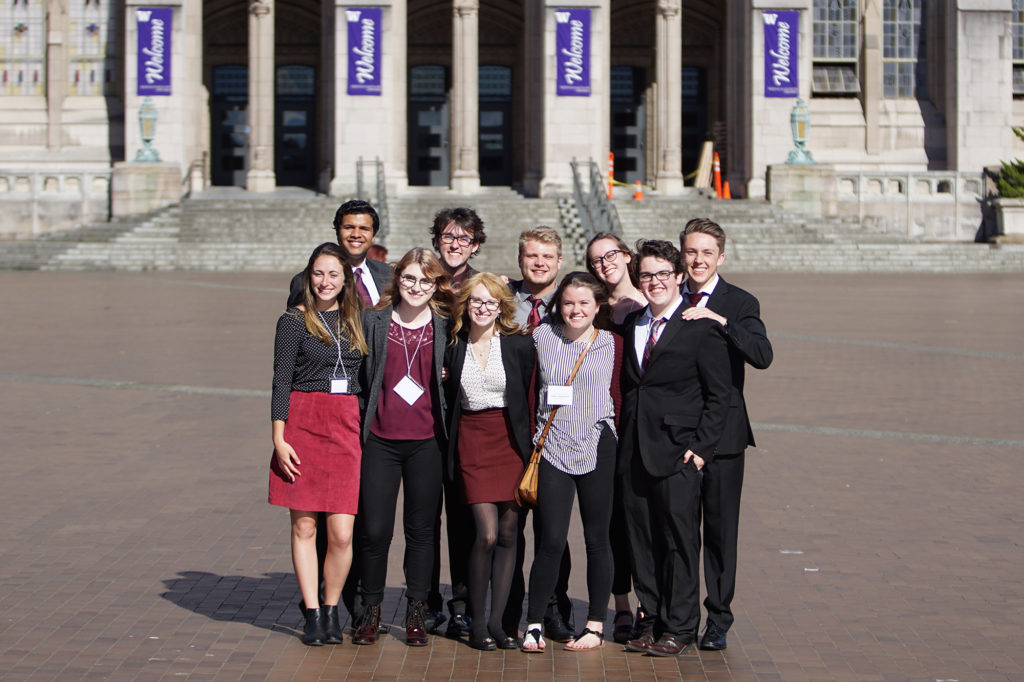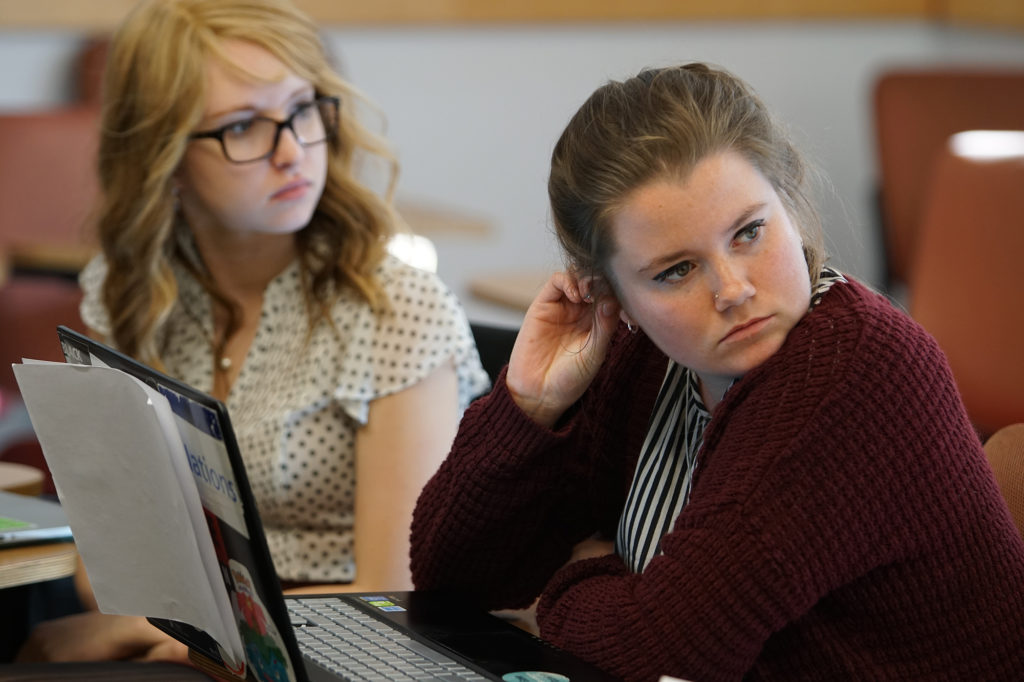Seattle University’s Model United Nations club dealt with international crises in real-time alongside other Washington universities last weekend for the club’s annual Security Conference (SCON) hosted at the University of Washington campus.

Members of Seattle U Model United Nations standing in Red Square at the University of Washington.
Seattle U, Washington State University and UW got the chance to handle simulated international crises, as student-delegates juggled real- world news alongside their Model United Nations’ goals and challenges.
“The entire idea of SCON is a crisis conference, so delegations usually come into this in the mindset of ‘let’s make a crisis,’” said Tyler Lincoln, Secretary General of UW’s MUN club.
“The conference happens over two days, and every committee session has been about three or four hours. And over those three or four hours, and over the two days, a lot happens over that time span…Hard work and deliberation between teams takes place across the conference.
Before the conference, each student was assigned a country to represent during the conference, so each MUN club was comprised of 10 students representing three nations: Russia, the United States and Estonia.
Within these teams, delegates collaborated and communicated to diffuse or heighten tensions between territories.
“SCON’s fast pace requires diplomatic, strategic, and out-of- the box thinking, with a wide array of unforeseeable scenarios awaiting delegates,” Lincoln wrote on the event’s Facebook page. “Delegates take actions through directives to respond quickly and thoughtfully to events as they unfold.”
As for why the U.S., Russia and Estonia were the countries selected for this year’s SCON, Lincoln said the conference tries to take advantage of what the year has presented in current events.
“We look at what are the major political crises that are going on in the international system right now,” Lincoln said. “And we narrow down a list of usually like our top three choices, and say, ‘this one looks like it’s gonna develop really well, it’s going to foster a very climactic scene where delegates can really take off with a real crisis.’”

Haley Sylvester and Shelby Barnes, both members of Seattle U Model United Nations, served in the Russian Federation cabinet for the weekend.
One of the more unique aspects of SCON is the freedom allowed to student delegates.
“It was striking how little structure there was,” said first-time Seattle U MUN participant Josh Merchant, a first-year international studies major. “A security conference is less structured than anything else, and it usually goes in whatever direction you want to take it in.”
Although SCON places a lot of power into the hands of individual delegates, Lincoln notes how that doesn’t always mean cooperation.
“Sometimes we have delegates that want to find diplomatic solutions, like in your more typical model UN conference, but there has also been a little back-stabbing,” Lincoln said. “Sometimes they create chaos, sometimes they create peace.”
For example, Merchant mentioned delegates could create chaos by causing sex scandals, military invasions, or even by choosing to fire the president or ruler of a country. Overall, the purpose of this conference was to allow students to interact with the realities and complexities of foreign affairs.
“At the end of the day, what happened was Russia successfully took over Estonia,” Merchant said. “I had never done [SCON] before this year. I really like international affairs, and international politics, and keeping up with those different things.”
Currently, SCON is of a smaller scale than some of MUN’s other events and conferences, since it is a relatively new competition.
“Thankfully we’ve had strong interest and growing interest over the last few years, we hope to see it continue,” Lincoln said.
SCON is for the student who maybe is new to MUN, but wants to wrestle with the realities of foreign affairs. “It’s sort of that fun roleplaying, self- directed story you could take wherever you want,” Merchant said.
For more information about getting involved in the MUN or their next conference, the clubs contact information can be found on their Facebook page: https://www.facebook. com/SeattleUMUN/ .
Josh Merchant is a staff writer for the Spectator.
Maddy may be reached at
mmesa@ su-spectator.com












